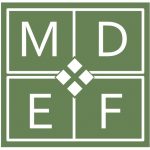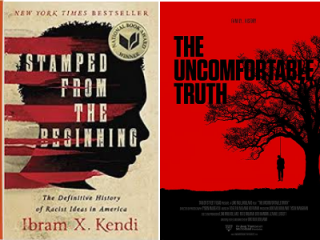Grant Opportunities
Classroom Grants
Classroom grants can be used for a variety of projects and materials, including purchasing educational materials from the Joan Trumpauer Mulholland Foundation. Funds usually must be used within one year of the application deadline.
Association of American Educators Foundation Classroom Grants 
AAE Grants are available for up to $500 and can be used for a variety of projects and materials, including but not limited to: books, software, calculators, math manipulatives, art supplies, audio-visual equipment, and lab materials. Funds must be used within one year of the application deadline.
The Awesome Foundation
The Awesome Foundation is a global community advancing the interest of awesome in the universe, $1000 at a time. Each fully autonomous chapter supports awesome projects through micro-grants, usually given out monthly.
Kellogg Foundation
The W.K. Kellogg Foundation is guided by the belief that all children should have an equal opportunity to thrive in school, work and life.
McCarthey Dressman Education Foundation Grants
The McCarthey Dressman Education Foundation offers Academic Enrichment Grants designed to develop in-class and extra-curricular programs that improve student learning for those from low-income households. The Foundation considers proposals that foster understanding, deepen students’ knowledge, and provide opportunities to expand awareness of the world around them.
National Endowment for the Humanities
The National Endowment for the Humanities has multiple educational grants available.
National Council for the Social Studies
The National Council for the Social Studies has multiple educational grants available.
NEA Foundation Grants
The NEA Foundation believes public education should stimulate students’ curiosity and excitement about learning and help them become successful 21st-century global citizens. Student Achievement grants help students learn how to think critically and solve problems.
Reiman Foundation Grants
The Reiman Foundation supports the dedication, imagination and courage of those involved in education, health care, the arts and children’s initiatives.
Voya Unsung Heroes
Voya Unsung Heroes grants are given to K-12 educators utilizing new teaching methods and techniques that improve learning.
Federal and Community Programs
Community and Crowdfunding Options
Using support from your local community, your school or classroom can purchase learning materials through the Joan Trumpauer Mulholland Foundation.
Pledgecents
PledgeCents has created a hassle free, no-nonsense interface where you can set up a fundraising page and then easily share it to your community via social media, email, newsletters, etc.
Local PTA or PTO
Through the support of your school’s PTA or PTO, your school can purchase educational materials through the Joan Trumpauer Mulholland Foundation. By involving parents in the purchase of these materials, they become more invested in their child’s learning.
The Rotary Club
The Rotary Foundation supports education through scholarships, donations, and service projects around the world.
U.S. Department of Education Financial Assistance Programs
There are various programs under the Department of Education that support funding in schools. By applying for these programs, you are able to bring educational materials into the classroom that might not have otherwise been possible.
Title I
Title I, Part A of the Elementary and Secondary Education Act, provides financial assistance to local educational agencies (LEAs) and schools with high numbers or high percentages of children from low-income families to help ensure that all children meet challenging state academic standards.
How the Funds Can be Used
The school must focus Title I services on children who are failing, or most at risk of failing, to meet state academic standards. Schools in which children from low-income families make up at least 40 percent of enrollment are eligible to use Title I funds for school wide programs that serve all children in the school. LEAs also must use Title I funds to provide academic enrichment services to eligible children enrolled in private schools.
Title II
Title II, Part A provides funds intended to increase academic achievement by improving teacher and principal quality. This program is carried out by: increasing the number of highly qualified teachers in classrooms; increasing the number of highly qualified principals and assistant principals in schools; and increasing the effectiveness of teachers and principals by holding LEAs and schools accountable for improvements in student academic achievement.
How the Funds Can Be Used
Funds may be used for professional development. In exchange for receiving funds, agencies are held accountable to the public for improvements in academic achievement. Title II, Part A provides these agencies the flexibility to use these funds creatively to address challenges to teacher quality, whether they concern teacher preparation and qualifications of new teachers, recruitment and hiring, induction, professional development, teacher retention, or the need for more capable principals and assistant principals to serve as effective school leaders.
Title II Applicant Information
Title III
Title III, Part A provides funds intended to assist schools with language instruction, specifically for Limited English Proficient students.
How the Funds Can Be Used
Funds may be used for professional development and language instruction programs.
IDEA
The Individuals with Disabilities Education Act (IDEA) is a law ensuring services to children with disabilities throughout the nation. IDEA governs how states and public agencies provide early intervention, special education and related services to more than 6.5 million eligible infants, toddlers, children and youth with disabilities. Children and youth (ages 3-21) receive special education and related services under IDEA Part B.
How the Funds Can Be Used
IDEA Part B Sections 611 and 619 funds must be used only to pay the excess costs of providing special education and related services to children with disabilities, such as costs for special education teachers and administrators; related services providers (speech therapists, psychologists, etc.); materials and supplies for use with children with disabilities; professional development for special education personnel; professional development for regular education teachers who teach children with disabilities; and specialized equipment or devices to assist children with disabilities. Expenditures must benefit eligible students who are receiving special education services.















